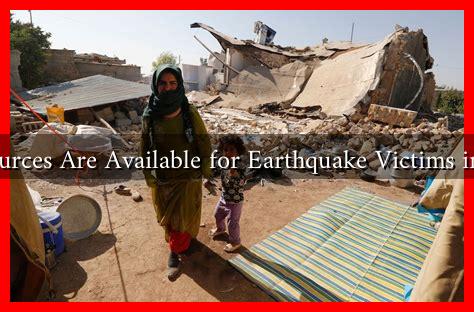-
Table of Contents
What Resources Are Available for Earthquake Victims in Lebanon?
Lebanon, a country situated along the complex tectonic boundaries of the Eastern Mediterranean, is no stranger to seismic activity. The potential for devastating earthquakes poses a significant risk to its population and infrastructure. In the aftermath of such disasters, it is crucial for victims to access various resources to aid in their recovery. This article explores the available resources for earthquake victims in Lebanon, including governmental support, non-governmental organizations (NGOs), and community initiatives.
Governmental Support and Initiatives
The Lebanese government has established several mechanisms to assist earthquake victims, although the effectiveness of these initiatives can vary. Key resources include:
- Emergency Response Teams: The Lebanese Civil Defense and the Army are often the first responders during a disaster.
. They provide immediate assistance, including search and rescue operations.
- Financial Aid: The government may offer financial assistance to affected families, although the amount and availability can fluctuate based on the national budget and international aid.
- Reconstruction Programs: Post-disaster, the government often initiates reconstruction programs aimed at rebuilding infrastructure and homes. These programs may include low-interest loans or grants for rebuilding efforts.
However, the effectiveness of these resources can be hampered by political instability and economic challenges, which have been prevalent in Lebanon in recent years.
Non-Governmental Organizations (NGOs)
Numerous NGOs play a vital role in providing support to earthquake victims in Lebanon. These organizations often fill the gaps left by governmental efforts and offer a range of services:
- International Federation of Red Cross and Red Crescent Societies (IFRC): The IFRC provides emergency relief, medical assistance, and psychological support to victims of natural disasters.
- Lebanese Red Cross: This organization is crucial in disaster response, offering first aid, transportation, and shelter for those affected by earthquakes.
- UNICEF: Focused on the needs of children and families, UNICEF provides educational resources, health services, and psychosocial support in the aftermath of disasters.
- Local NGOs: Organizations such as Basmeh & Zeitooneh and the Lebanese Food Bank offer food, shelter, and other essential services to those in need.
These NGOs often rely on donations and international funding to sustain their operations, making public support essential for their continued effectiveness.
Community Initiatives and Local Support
In addition to formal organizations, local communities often come together to support earthquake victims. Community initiatives can include:
- Fundraising Events: Local groups may organize events to raise funds for victims, such as charity runs, concerts, or bake sales.
- Volunteer Efforts: Community members often volunteer their time and resources to help with clean-up efforts, provide food, or offer shelter to those displaced.
- Awareness Campaigns: Local organizations may run campaigns to educate the public about earthquake preparedness and response, helping to build resilience within communities.
These grassroots efforts can be incredibly effective in providing immediate relief and fostering a sense of solidarity among residents.
Case Studies and Statistics
To illustrate the impact of these resources, consider the 2006 earthquake that struck the region. According to the Lebanese Ministry of Public Health, over 1,000 people were affected, with many requiring immediate medical attention and shelter. NGOs like the Lebanese Red Cross mobilized quickly, providing first aid to over 500 individuals within the first 48 hours.
Furthermore, a report by the World Bank indicated that effective disaster response can reduce recovery time by up to 30%, highlighting the importance of timely and coordinated efforts from both governmental and non-governmental entities.
Conclusion
In conclusion, while Lebanon faces significant challenges in managing earthquake disasters, a variety of resources are available to support victims. Governmental initiatives, NGOs, and community efforts all play crucial roles in providing immediate relief and long-term recovery solutions. As Lebanon continues to navigate its complex socio-political landscape, the resilience of its people and the effectiveness of these resources will be vital in mitigating the impacts of future earthquakes. For more information on how to support earthquake victims in Lebanon, consider visiting [Lebanese Red Cross](https://www.redcross.org.lb).





